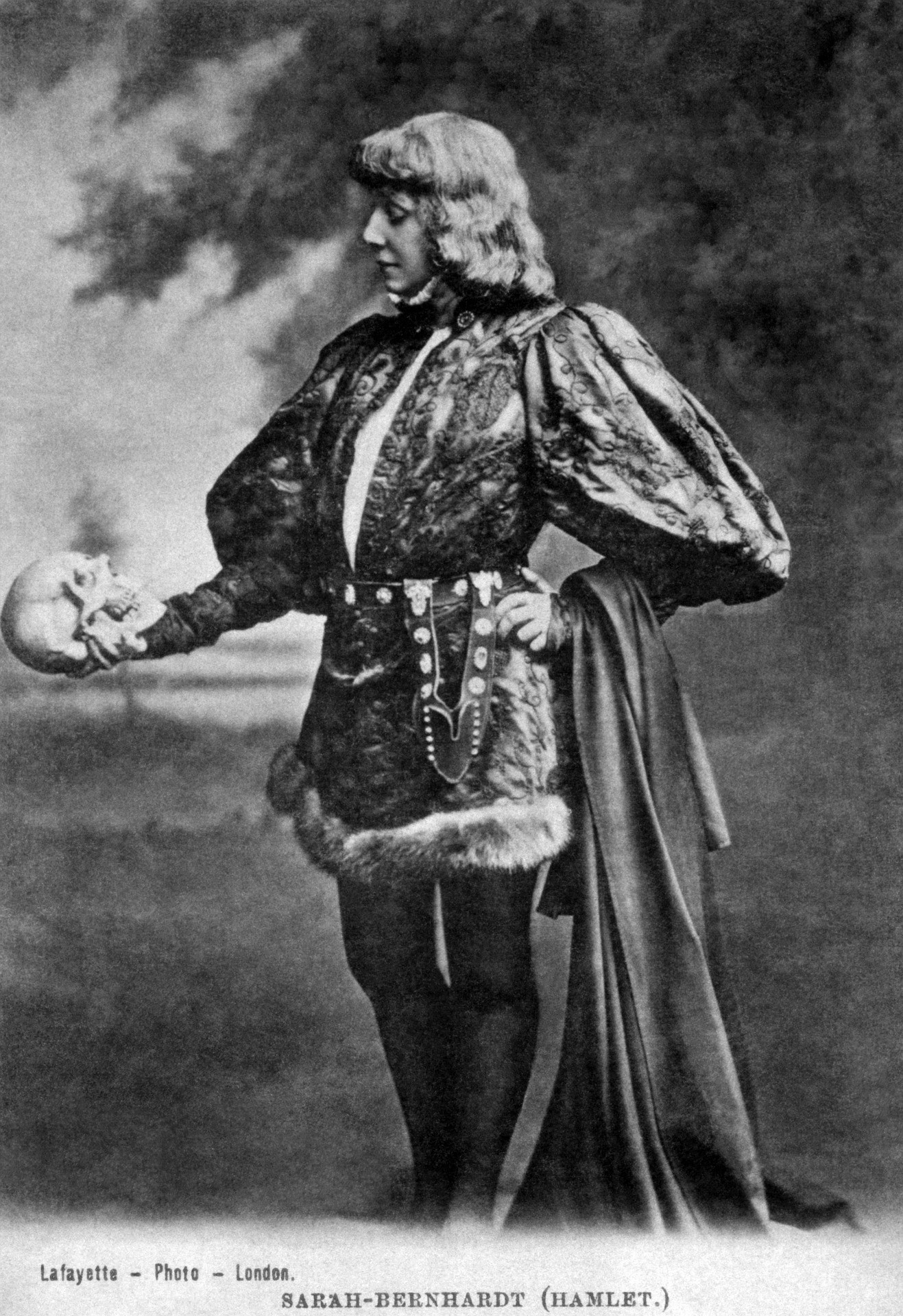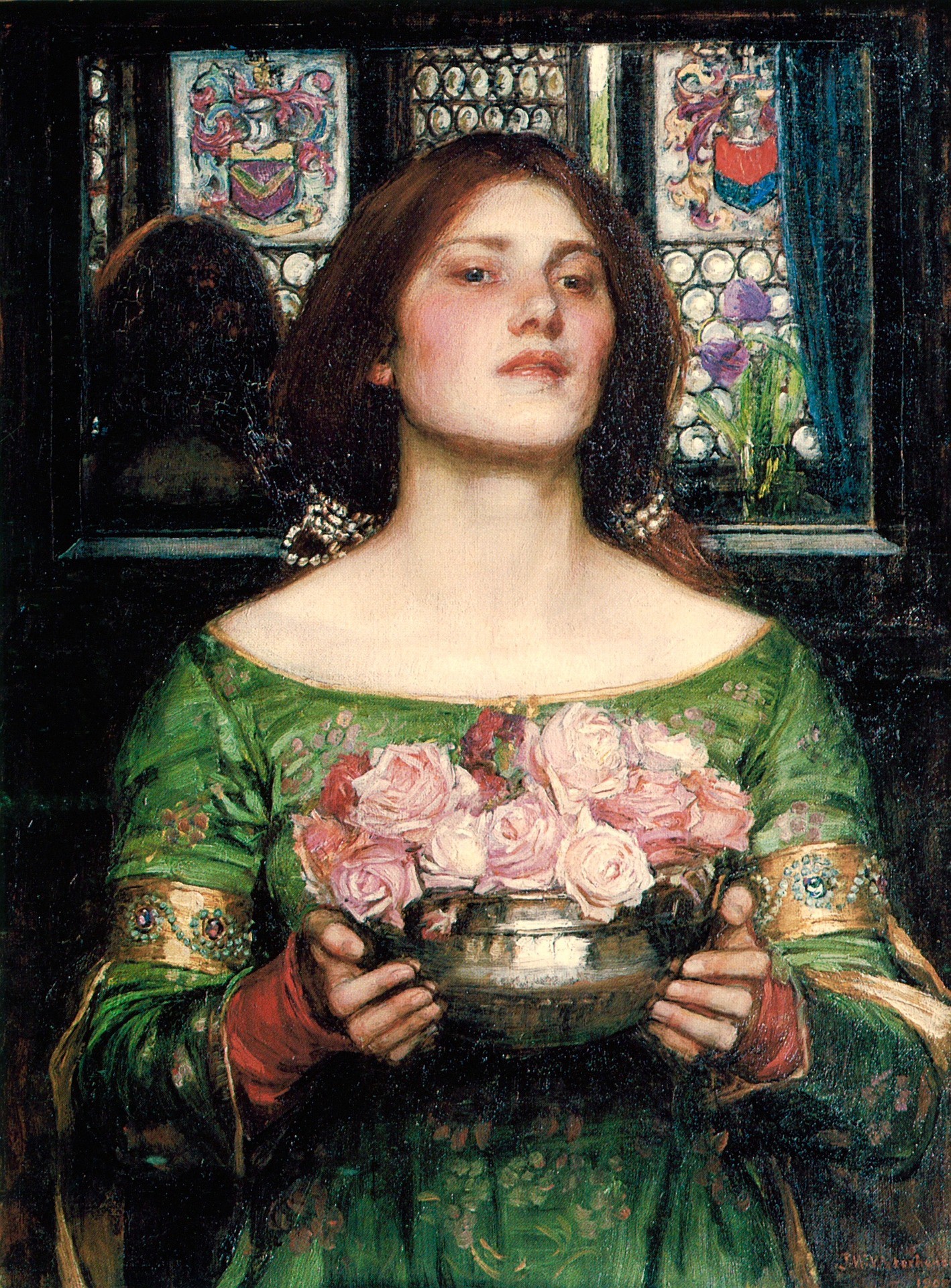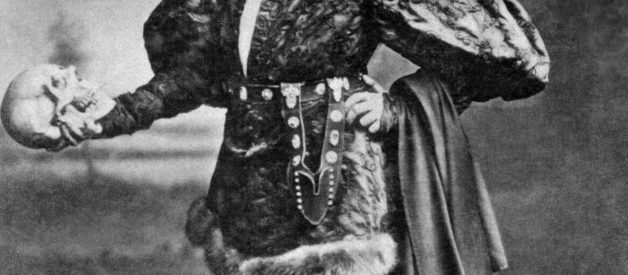The inherent nature of drama consists of the back and forth ? the thrust and repulsion ? of conflict. Without conflict, a work of dramatic literature suffers from a lack of movement or flow that allows the narration to crescendo and move the audience or reader to a state animation. Weaving conflict effortlessly throughout drama is necessary to make the work interesting and able to speak to the person sitting on the receiving end of the dramatic work.
The notion that the reader/audience of any particular work of drama is passive contradicts the very condition of the human experience and its relationship with dramatic works. Drama reflects life and by reflecting life it mirrors the struggles, problems, and circumstances of the reader. Therefore, drama necessarily works in conflict at various levels to the same effect that the human experience reflects conflict at different levels.
William Shakespeare achieves the necessary elements of conflict throughout Hamlet by creating an inward conflict focusing on Hamlet?s struggle to avenge his father. In this case, Shakespeare focuses on Hamlet?s powerful oedipal complex. Externally, Shakespeare sketches the outward conflict around the legitimacy of Hamlet?s claim to the crown.
INTERNAL CONFLICT
 https://pixabay.com/en/users/WikiImages-1897/
https://pixabay.com/en/users/WikiImages-1897/
The inward conflict in Hamlet lies in the psychological malcontent of the play?s titular character, Hamlet. At an internal level, Hamlet seems to be delaying his revenge because he is divided by his mother?s betrayal of his father, which is a constant preoccupation for him. This internal preoccupation is at odds with the ghost?s order for vengeance. Tabassum Javed in ?Perfect Idealism in Shakespeare?s Prince Hamlet? ascribes Hamlet?s internal conflict to a clash between his own grief and the ghost?s demand for vengeance. Javed states, ?he can save himself and Denmark by killing Claudius, but to kill Claudius is to act out his father?s wish and the disaster for Hamlet is that this course of action perfectly coincides with the solution of his own problem. Hamlet is torn between two courses of action, both equally painful? (327).
To this effect, Hamlet?s inner preoccupation lies chiefly with the relationship between his mother and uncle. The first line he utters is, ?a little more kin and less than kind? (Shakespeare I.2.65). Hamlet struggles with the concept that his mother could betray his father. The betrayal of his father bothers Hamlet because he does not know how to deal with his repressed feelings about his mother and his own oedipal animosity towards his father. Also, the psychological shock of losing his father is augmented by a perceived betrayal to the sanctity of marriage and family ties. Kawsar Uddin summarizes Freudian analyses of Hamlet?s parental relationship stating, ?Hamlet in his unconscious had an incestuous desire for his mother and had a murderous desire towards his father? (695). In the exchange that follows, where his mother, Gertrude, questions Hamlet?s grief his mental state and inner conflict are evident:
QUEEN GERTUDE If it be,Why seems it so particular with thee?
HAMLET Seems, madam? Nay, it is. I know not ?seems?.?Tis not alone my inky cloak, good mother,Nor customary suits of solemn black,Nor windy suspiration of forced breath,No, nor the fruitful river in the eye,Nor the dejected ?havior of the visage,Together with all forms, moods, shapes of grief,That can denote me truly. These indeed ?seem,?For they are actions that a man might play.But I have that within which passeth show,These but the trappings and the suits of woe (I.2.74?85).
Hamlet expresses his true mental anguish to his mother and seems to be surprised at her nonchalance and lack of grief for her husband. The short timeframe for his
Mother?s marriage to his uncle demonstrates to Hamlet a lack of true love for his father that was new to him but it also bothers him because of desires that he cannot seem to understand.
 https://pixabay.com/en/john-william-waterhouse-1231615/
https://pixabay.com/en/john-william-waterhouse-1231615/
Hamlet?s issues with his mother become a motivating internal conflict that moves the story along. Sandra Young expresses a reading of what she calls an Oedipal Hamlet in her essay ?Recognising Hamlet.? Young argues, ?Oedipus offers an explanation for this vigorous Hamlet?s indecision in the matter of avenging his father?s death ? he can?t kill the usurping Claudius because he unconsciously identifies with him? (14). The idea that Hamlet at once hates his uncle for killing his father but at the same time is jealous in an oedipal form strikes at the heart at the inner conflict that Hamlet is suffering from the very beginning of the play. After the confrontation with his uncle and mother he states:
Fie on ?t, ah fie! ?Tis an unweeded gardenThat grows to seed. Things rank and gross in naturePossess it merely. That it should come to this.But two months dead ? nay, not so much, not two.So excellent a king, that was to thisHyperion to a satyr. So loving to my motheris it her face too roughly! (I.2.135?141).
He asserts that the garden (his family) is not being kept and growing wild. He does not express his discontent towards his mother but holds it inside allowing it to fester and push aside logical behavior. He again mentions his father and implies to his mother how little the king must have meant for her in order to replace him so quickly. This replacement returns us to the notion of the oedipal Hamlet who feels that his uncle has taken from him a birthright.
The birthright Hamlet question is not only his father?s place and but, also, the overthrow of his father?s position in regards to his mother. Taking ownership of the throne is at odds in Hamlet?s psyche with who he is removing from the throne (his uncle and not his father). It is this inner struggle represented by Hamlet?s postponement of his father?s vengeance that illuminates the audience into his inner struggle. Javed explains, ?Hamlet could be a man of decisive action, capable of anything ? except the avenging of acts, his conscience intuited, that were in keeping with his own repressed desires? (330). This internal oscillation between his hate for his uncle who killed his father but at the same time admiration for doing what he might have desired himself is hinted at in the text as he questions the ghost. When the ghost reveals the murderer, Hamlet questions, ?O my prophetic soul! Mine uncle?? (I.5.41). Hamlet suddenly hesitates to believe ? and later act ? when a few moments before he was eagerly stating:
Haste, haste me to know it, that with wings as swiftAs meditation or the thoughts of loveMay weep to my revenge (I.5.29?31).
The give and take happening within Hamlet?s psyche is palpable. His uncle and mother?s incestuous relationship is despicable to him, as we have discussed previously and, yet, when it comes to his uncle and carrying out his revenge Hamlet cannot bring himself to act. The psychological conflict moves the forces of Hamlet and this play along and provides a vehicle for the plot to take shape inwardly but as we will see further also outwardly.
OUTWARD CONFLICT
As we have seen up to now Shakespeare manages to generate inner conflict but he also masterfully creates outward conflict. Hamlet possess the necessary elements to establish the anguish within but also proves that Shakespeare comprehends the complexity of legal systems and the give and take of power and position. At the heart of the play the outer conflict revolves around the question of the crown and succession. Michael Taylor in ?The Conflict in Hamlet? states, ?The essential conflict in Hamlet, I believe, is that between man as a victim of fate and as controller of his own destiny? (150). The question of fate is intimately related to succession. Hamlet questions if he is required to take the crown on behalf of his murdered father and even attempts to escape this fate by accepting his uncle?s banishment. The following quotation establishes Hamlet?s reaction to the banishment:
HAMLET For England?KING CLAUDIUS Ay, Hamlet.HAMLET Good.KING CLAUDIUS So is it, if thou knew?st our purposes.HAMLET I see a cherub that sees them. But come, for England.Farewell, dear mother (IV.3.46?51).
Hamlet battles with fate and rejects the notion that he is destined for the crown by gladly accepting the banishment. The fricative nature of Hamlet?s embrace of revenge as a means of justice is juxtaposed by his lack of action towards the usurper and creates the required tension to envelop Shakespeare?s work of drama in conflict.
The use of fate as a plot device further adds to the outward conflict in Hamlet. J.J. Lawlor in his essay ?The Tragic Conflict in Hamlet? goes into detail about the function of fate in the play. Lawlor states, ?in so far as the play?s action is concerned, [fate is] nothing other than a limitation of the hero?s field of choice ? a limitation wholly consonant with real experience, compelling the human agent, being such a man as he is, to make the choice that involves disaster? (102). In this case, Shakespeare limits Hamlet?s banishment. Hamlet is faced once more with the crown. He is faced with the conflict at hand, namely, succession. Andrew Hadfield argues that ?it is not surprising that Shakespeare?s plays written just before and after the death of Elizabeth consider the problem of the succession and the question of the legitimacy of the ruler? (566). The question of legitimacy is the central outward conflict in Hamlet.
Hamlet does not see his uncle as the legitimate hair to the throne but does not outright argue the point by killing the man. King Claudius has consolidated power around his reign before Hamlet even enters the play. He has established legal tender by marrying the previous King?s wife and, by blood right, seems to have a legitimate claim to the throne as the previous King?s brother. Hadfield further explains, ?Hamlet represents a nation ruled by a paranoid and unstable court, threatened by aggressive and powerful enemies, ruled by a murderous usurper, and haunted by a ghost from the past whose intervention, while legitimate, only brings destruction? (568). The nation under duress and amid political turmoil crowns a king which claims to the crown are, at best, questionable. Shakespeare emphasizes this outward conflict by pitting King Claudius and Hamlet?s claim.
King Claudius himself knows the fragility of his legal case for the crown because he demonstrates a willingness to move away from the subject of his brother?s death. The ensuing excerpt demonstrates the King?s resolve:
Though yet of Hamlet our dear brother?s deathThe memory be green, and that it us befittedTo bear our hearts in grief and our whole kingdomTo be contracted in one brow of woe,Yet so far hath discretion fought with natureThat we with wisest sorrow think on himTogether with remembrance of ourselves (I.1.1?7)
By having the court and kingdom quickly move on from the death and grieve of losing the older Hamlet, King Claudius can consolidate the claim to the crown and prove a powerful force against Hamlet. Hamlet, on the other hand, comes into the fray without evidence to prove that his uncle is indeed a usurper who stole the crown through illegal means. Hamlet arrives in Demark to find his uncle in possession of the Crown and his mother. The conflict demands resolution. Shakespeare asks the audience to dissect Hamlet?s, the rightful heir to the crown, claim against King Claudius? illegitimate claim.
The outward conflict surrounding the crown bears fruition in a manner that is ironic. Hadfield identifies the irony when he states, ?The murder of Hamlet senior precipitates a chain of events which leaves Denmark not only deprived of its royal family, but in the same position, it would have been in had Fortinbras senior defeated Hamlet? (568). The conflict surrounding the crown provides the necessary crises to move the plot along and bring the audience towards a general understanding and resolution of the conflict. King Claudius underscore the state of the outward conflict when he says:
Now follows that you know. Young Fortinbras,Holding a weak supposal of our worthOr thinking by our late dear brother?s deathOur state to be disjoint and out of frame (I.2.17?20).
The state of Denmark?s royal family clearly has greater repercussions for the fate of the nation. The infighting between the family over the crown, revenge, and justice disarms the nation as a whole and serves to set up a conflict in which the stability a whole country suffers over the squabbles, justified or not, of the royal family. This outward conflict serves to define the play at large and pulls in its characters in order to provide the necessary elements to craft a drama out of Hamlet.
CONCLUSION
In Hamlet Shakespeare deftly contrives inward and outer conflict into his drama. The major inward conflict is marked by Hamlet?s repressed desires and his refusal to believe the ghost of his father and later to quickly avenge him. Hamlet, experiencing an oedipal complex, at once is pitted against a repressed desire for his mother and envy of his father/uncle. The line after Queen Gertrude offers him a drink is telling. At the offer to drink something pleasurable Hamlet exclaims, ?I dare not drink yet, madam; by and by? (V.2.236). He, who is preoccupied constantly by ? what he describes ? as the incestuous nature of his mother?s relationship with his uncle, harbors desires that he cannot give expression to and that ultimately lead him to postpone his vengeance. Meanwhile, the inner connects with the outer and the battle for the crown of Denmark becomes the focus of the outward conflict. Loyalty to the crown and the ramifications of who justly deserves the crown can be felt when King Claudius tells Valtemand, ?Farewell, and let your haste commend your duty? (I.2.39). The political play for the crown provides the work of drama with the outward conflict the moves the plot along. Thus, Shakespeare crafts a drama using both inward and outward conflict to engage audiences generation after generation.
Works Cited
Hadfield, Andrew. ?The Power and Rights of the Crown in ?Hamlet? and ?King Lear:? ?The King: The King?s to Blame?.? The Review of English Studies2003: 566. JSTOR Journals. Web. 21 June 2016.
Javed, Tabassum. ?Perfect Idealism in Shakespeare?s Prince Hamlet.? Dialogue (Pakistan) 8.3 (2013): 327?333. Humanities Source. Web. 20 June 2016.
Lawlor, J. J. ?The Tragic Conflict in Hamlet.? The Review of English Studies 1950: 97. JSTOR Journals. Web. 20 June 2016.
Shakespeare, William. ?The Tragedy of Hamlet, Prince of Denmark.? Ed. Stephen Greenblatt, Walter Cohen, Jean E. Howard, Katharine Eisaman Maus, and Andrew Gurr. The Norton Shakespeare: Essential Plays, the Sonnets. 1080?1168. New York: W.W. Norton, 2009.
Taylor, Michael. ?The Conflict in Hamlet.? Shakespeare Quarterly 1971: 147. JSTOR Journals. Web. 20 June 2016.
Uddin, Kawsar. ?Dilemma And Desire In Hamlet.? Language In India 14.12 (2014): 694?700. Communication & Mass Media Complete. Web. 20 June 2016.
Young, Sandra. ?Recognising Hamlet.? Shakespeare In Southern Africa 26.(2014): 13?26. Academic Search Premier. Web. 20 June 2016.


